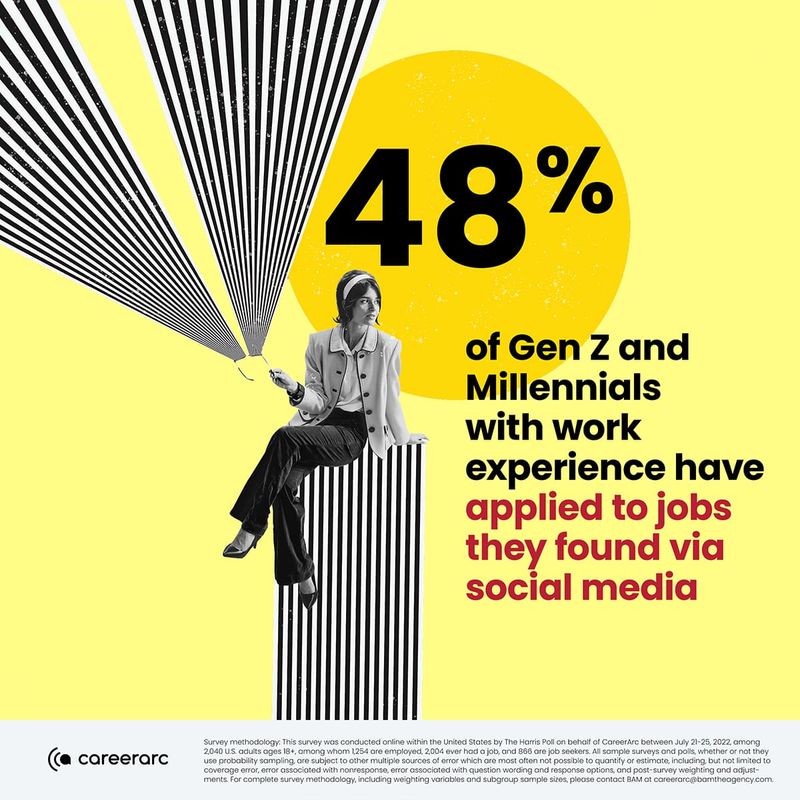In today’s diverse workplace, generational differences can sometimes lead to misunderstandings or frustrations. Gen Z, the newest entrants to the workforce, bring fresh perspectives and expectations. However, there are certain habits or behaviors from their colleagues that they find particularly irksome. This list explores the top 11 things Gen Z wishes their coworkers would stop doing, offering insights into the evolving dynamics of modern workplaces.
1. Ignoring Technological Advances

Ever felt like you’re talking to a brick wall when suggesting a new app or software? Gen Z often feels this way at work. Raised in a digital age, they thrive on efficiency and innovation. Technology isn’t just a tool; it’s their language.
Ignoring technological advances not only frustrates them but also slows down team progress. They wish their coworkers would embrace new tools, making collaboration smoother.
So, next time a Gen Z colleague suggests a tech upgrade, consider listening. It might just boost productivity and create a more harmonious work environment.
2. Over-Reliance on Emails

Does your inbox ever feel like a black hole? For Gen Z, email is often seen as outdated and inefficient. They grew up with instant messaging and real-time communication as the norm.
The constant ping of new emails can be overwhelming and disruptive. Gen Z wishes their colleagues would use instant messaging platforms more, reducing email overload and quickening response times.
Opting for a quick chat instead of a lengthy email could lead to more effective communication and less digital clutter, aligning with their preference for speed and clarity.
3. Resisting Change

Change is the only constant, yet some resist it like the plague. For Gen Z, adaptability is key. They come with fresh ideas, eager to innovate and improve processes.
When coworkers resist change, it feels like hitting a brick wall for them. Gen Z wishes for openness and willingness to try new approaches.
By embracing change, workplaces become more dynamic and forward-thinking. Remember, what seems uncomfortable today might be tomorrow’s norm. So, why not give new ideas a chance?
4. Micromanaging

Feeling watched 24/7? Gen Z values autonomy and trust at work. They thrive when given space to explore and execute their ideas.
Micromanaging stifles creativity and can lead to dissatisfaction. Gen Z wishes their supervisors would trust them more, allowing for independence and innovation.
By stepping back, managers can foster a more trusting and empowering environment, where Gen Z employees feel valued and motivated. After all, a little trust goes a long way in building a collaborative team spirit.
5. Excessive Meetings

Ever felt like meetings could’ve been an email? Gen Z often does. They appreciate concise, purposeful interactions. Endless meetings drain productivity and enthusiasm.
Gen Z wishes for more focused discussions, with clear agendas and outcomes. Trimming down unnecessary meetings can enhance efficiency and keep spirits high.
Next time you’re scheduling a meeting, think if it’s essential. Sometimes, a quick chat or a well-written update does the job, keeping the team energetic and engaged.
6. Underestimating Social Media’s Power

In a world where a tweet can spark a movement, underestimating social media is a misstep. Gen Z knows its power, having grown up as digital natives.
They wish for recognition of social media’s potential in branding and outreach. It’s not just a pastime; it’s a powerful tool for engagement and influence.
By embracing social media’s reach, companies can tap into new audiences and foster brand loyalty. Trust Gen Z to guide you through the digital landscape. It’s a journey worth taking.
7. Dismissing Work-Life Balance

Burnout is real, and Gen Z is acutely aware of it. They treasure work-life balance and mental health. Dismissing these aspects can lead to disengagement and exhaustion.
Gen Z wishes for workplaces that prioritize well-being, offering flexibility and understanding. A balanced approach fosters productivity and satisfaction.
Consider implementing policies that promote a healthier work environment. A happy employee is a productive one, and Gen Z believes in working to live, not living to work.
8. Devaluing Diversity and Inclusion

Diversity isn’t just a buzzword; it’s a strength. Gen Z understands this, having grown up in a multicultural world. They see value in varied perspectives and inclusive spaces.
Ignoring diversity and inclusion can alienate and demotivate them. Gen Z wishes for workplaces that celebrate differences and champion equality.
By fostering an inclusive environment, companies can unlock creativity and innovation. Embracing diversity isn’t just the right thing to do; it’s the smart thing to do.
9. Relying on Traditional Hierarchies

In a world moving towards collaboration, traditional hierarchies feel outdated. Gen Z values teamwork, transparency, and flat structures.
Rigid hierarchies can stifle communication and hinder growth. Gen Z wishes for more egalitarian approaches, where every voice is heard.
By breaking down barriers, workplaces can become more innovative and responsive. A modern approach to structure can lead to a more cohesive and motivated team.
10. Ignoring Environmental Concerns

The planet’s health isn’t just a personal concern; it’s a professional one too. Gen Z is passionate about sustainability and eco-conscious practices.
Ignoring environmental issues can be disheartening for them. They wish for workplaces that adopt green practices, reducing waste and carbon footprints.
By prioritizing sustainability, companies can align with Gen Z values and contribute to a healthier planet. It’s a change that benefits everyone, today and tomorrow.
11. Assuming One-Size-Fits-All

Everyone is unique, yet some workplaces assume a one-size-fits-all approach. Gen Z knows that personalization leads to better engagement and satisfaction.
They wish for workplaces that acknowledge individuality, offering tailored solutions and flexible paths. Recognizing personal strengths and preferences can unlock potential.
By adopting a more personalized approach, companies can boost morale and productivity. After all, understanding and respecting differences can lead to a more harmonious and efficient workplace.

